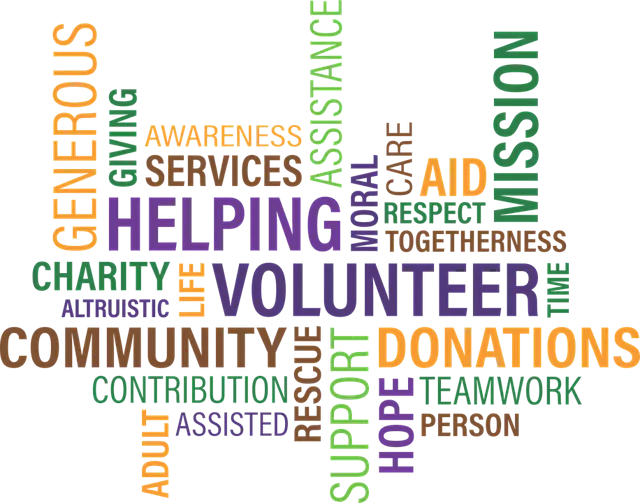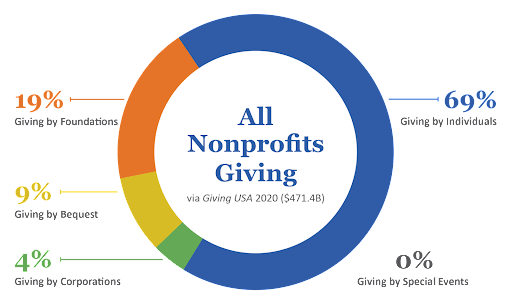Companion with a Nonprofit Company to Enhance Your Company's Success
Companion with a Nonprofit Company to Enhance Your Company's Success
Blog Article
Discovering the Diverse Features and Responsibilities of a Nonprofit Agency in Attending To Social Issues and Supporting Modification
Not-for-profit firms offer as vital agents of modification within society, dealing with a myriad of social concerns via multifaceted methods. Their responsibilities expand past simple service provision; they engage in advocacy, source mobilization, and area outreach, frequently working as a bridge between marginalized populations and necessary services. By cultivating cooperations and employing culturally pertinent methods, these organizations address the root causes of social difficulties. Yet, the intricacies of their duties elevate important questions regarding efficiency and sustainability. What are the ramifications of these diverse functions on long-lasting area influence?
Understanding Nonprofit Company Duties
The performance of nonprofit companies pivots on a clear understanding of their diverse functions within culture. These companies serve as vital intermediaries between the public, exclusive, and governmental sectors, addressing various social issues and advocating for adjustment. Not-for-profit firms frequently function as solution carriers, supplying crucial programs and resources to underserved populaces. This role is crucial in filling voids that may exist in public solutions, guaranteeing that vulnerable teams have access to necessary assistance.
In addition, nonprofits play a crucial role in campaigning for, elevating understanding and affecting policy decisions that influence their communities. By taking part in research and public education and learning, these organizations aid shape public discourse and advertise notified decision-making - nonprofit agency. They likewise serve as platforms for volunteerism, setting in motion area members to contribute their time and abilities toward cumulative objectives
Moreover, nonprofit companies commonly serve as conveners, combining varied stakeholders to foster cooperation and collective effect. This joint method boosts their capacity to attend to complex social problems properly. Comprehending these multifaceted functions is important for optimizing the potential of not-for-profit agencies in producing lasting social modification and boosting total community health.
Area Involvement and Outreach
Efficient area involvement and outreach are fundamental components of not-for-profit agencies' methods to cultivate links and construct count on within the neighborhoods they offer. These initiatives concentrate on recognizing neighborhood demands, promoting awareness of offered resources, and encouraging engagement in programs made to attend to social problems. Not-for-profit organizations employ a selection of techniques to involve with neighborhood members, such as workshops, educational sessions, and collaborative occasions.
Outreach campaigns serve to enhance connections with diverse populations, particularly marginalized teams that might encounter barriers to gain access to. By utilizing culturally pertinent communication strategies and leveraging regional collaborations, nonprofits can improve their presence and demonstrate their dedication to community empowerment. This technique not only grows a sense of belonging yet likewise increases the chance of continual involvement.
Moreover, effective community engagement exceeds mere participation; it involves actively paying attention to community participants' comments and including their insights right into program advancement. This collaborative process ensures that the solutions supplied are responsive, appropriate, and tailored to the one-of-a-kind challenges faced by the neighborhood. Inevitably, cultivating strong connections through interaction and outreach can cause even more impactful treatments and a greater collective initiative toward promoting favorable social change.
Advocacy and Policy Influence
Advocacy acts as a crucial mechanism for nonprofit companies to influence public policy and drive systemic modification. By leveraging their knowledge and neighborhood understandings, these companies can properly represent marginalized populations and address pushing social concerns. Nonprofits participate in advocacy with numerous strategies, including public understanding projects, grassroots mobilization, union building, and direct lobbying of policymakers.
With these initiatives, nonprofit agencies intend to form regulation and plan frameworks that align with their objective and the requirements of the areas they serve. They perform study, gather data, and share compelling stories to highlight the necessity of particular problems, making certain that decision-makers are notified and motivated to act. This process not only intensifies the voices of those affected by social oppressions however also promotes a more inclusive and equitable policymaking atmosphere.
In addition, campaigning for efforts typically seek to create long-term architectural modifications, attending to root causes rather than simply alleviating signs. By focusing on plan impact, not-for-profit agencies add to a wider understanding of social challenges and advertise options that can bring about lasting enhancements in societal wellness. Ultimately, campaigning for is essential to the transformative role nonprofits play in developing a just and equitable culture.
Fundraising and Resource Monitoring
Nonprofit companies depend on robust fundraising and resource administration methods to support their campaigning for efforts and maintain their goals. By employing a multi-faceted approach, nonprofits can alleviate the risks connected with dependence on a solitary funding resource.
Source monitoring is similarly crucial, as it includes the critical allocation of both human and monetary sources to make best use of effect. Nonprofits have to establish spending plans that line up with their goals while making sure transparency and responsibility to stakeholders. This entails routine tracking of expenses and changing approaches as required to maximize source usage.

Partnership and Collaborations
While many companies seek their goals individually, cooperation and partnerships can significantly improve the performance of nonprofit firms. By collaborating with various other nonprofits, government entities, and economic sector organizations, nonprofits can pool resources, share knowledge, and enhance their effect on social concerns. Collaborative initiatives frequently cause cutting-edge services that might not be possible independently, leveraging the toughness of each companion to attend to complicated obstacles.

Eventually, effective collaboration calls for clear interaction, shared objectives, and mutual regard among partners. By accepting a cooperative method, nonprofit firms can create sustainable networks that not only address prompt social problems but also add to long-term systemic modification, cultivating a much more equitable society. Via cooperation, nonprofits can flourish and maximize their possibility for significant influence.
Conclusion
Not-for-profit firms serve as critical entities in attending to social concerns and cultivating adjustment within neighborhoods. Eventually, the complex duties of nonprofit agencies significantly contribute to the quest of social justice and the enhancement of neighborhood wellness.
Recognizing these multifaceted roles is critical for making the most of the possibility of not-for-profit agencies in producing lasting social adjustment and boosting total neighborhood well-being.
Effective community engagement and outreach are fundamental parts of not-for-profit firms' approaches to promote connections and construct trust fund within the communities they offer. By functioning with each other with various other nonprofits, federal government entities, and exclusive field organizations, nonprofits can pool resources, share know-how, this content and intensify their influence on social problems.Not-for-profit companies offer as critical entities in promoting and dealing useful content with social problems adjustment within communities - nonprofit agency. Inevitably, the complex roles of not-for-profit agencies dramatically contribute to the quest of social justice and the improvement of neighborhood well-being
Report this page